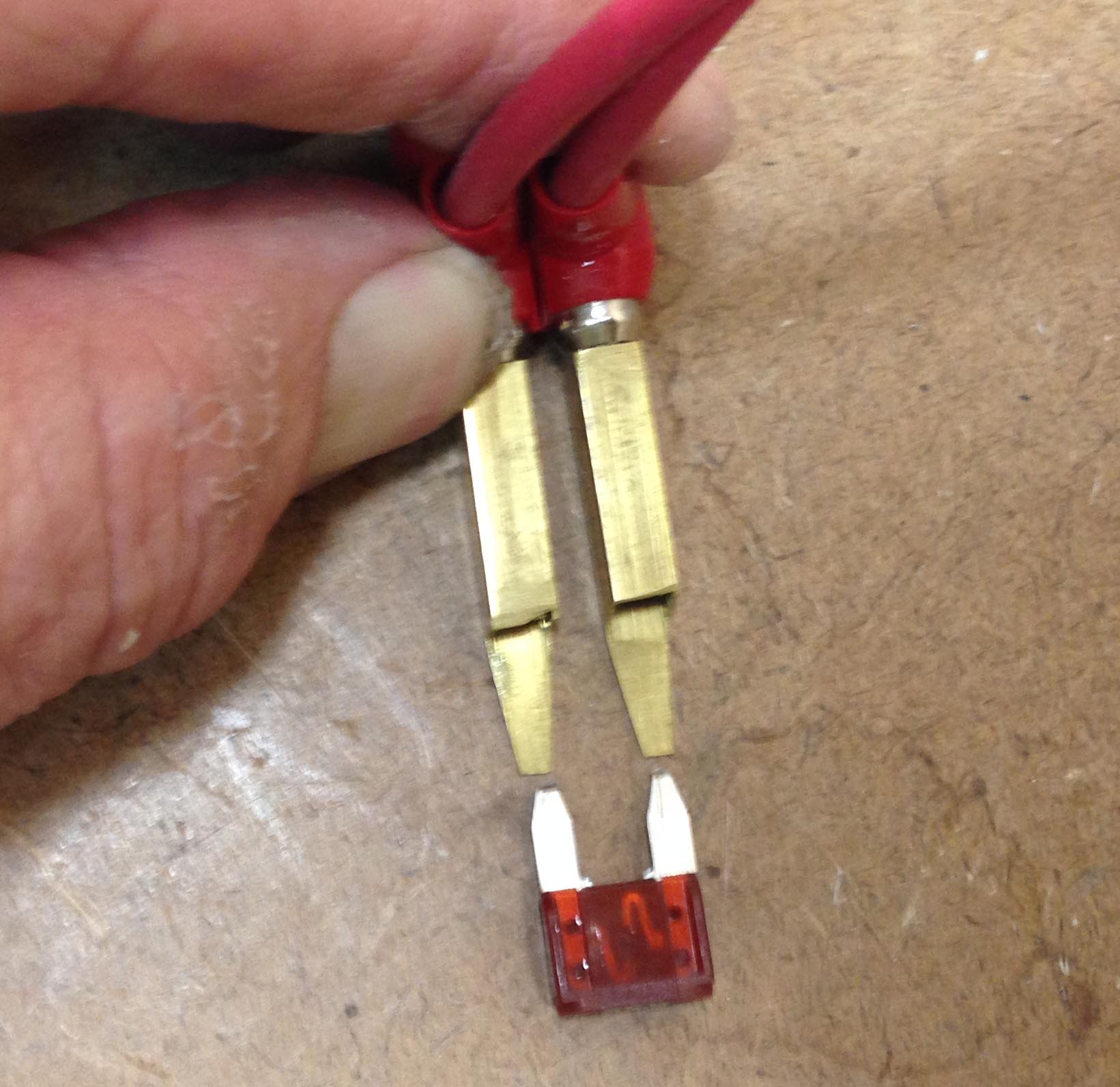AeroElectric Connection
|
Bob's Shop Notes: |
|
Bob's Shop Notes: |
| The A/C in my best road car has been shutting down intermitently.
Seems the fuse that protects the compressor clutch
power was experiencing an overload. This is a very simple circuit.
The fuse supplies power to contacts in a clutch relay. Power through
an energized relay is rounted to the compressor clutch. At first, the
fuse seemed to be opening on engine start-up. Replacing the fuse would
get me hours to perhaps a day of normal a/c operation. Question: Am I looking for a hard fault (wire rubbed to ground) or a clutch with shorted turns that draws too much current? I needed to discover the over-current conditions without getting into the car's wire bundles. Went to my supply of K and S Engineering brass shapes and found some 3/16" square square brass tube that would make a good fit to a standard bananna plug. I then sanded the sides of a pair of banana plugs so that they could be bonded together (E6000) with 0.320" centers (spacing of blades on the ATN fuse). With a little work at the 1" belt sander, I fabricated these shapes from the square tube. |
Click Here for Larger Image
 |
| Click Here for Larger Image
 |
The 'blades' make a snug installation onto the bananna plugs. A visual check compares the spacing with an ATN fuse (A similar process can be sued to fabricate a probe for ATC fuse holders). |
| The tool is finished by adding lead wires with bananna plugs to
mate with a handy multimeter.
It would be good if the test lead wires are be fitted with an |
Click Here for Larger Image
 |
| Click Here for Larger Image
 | Out in the driveway, I can now
replace the tormented fuse with the test fixture. Here we see that clutch
current (normally 3-4A) is now more like 10.5A suggesting that the
fault is not intermiitent but continuous . . . most probably caused
by shorted turns in the compressor clutch. This is confirmed by
the fact that replacing the nomral 7.5A fuse with a 10A device would
yield un-inerupted a/c perforamance. It also explains why replacing the
7.5A fuse would produce some duration of normal a/c operation . . . the
shorted coil was going to warm up at elevated current draw. The draw
goes down as the copper warms up. With this data I can now go on the computer to get a new compressor on order . . . sure glad I don't have to trace wires/bundles looking for damage!
|